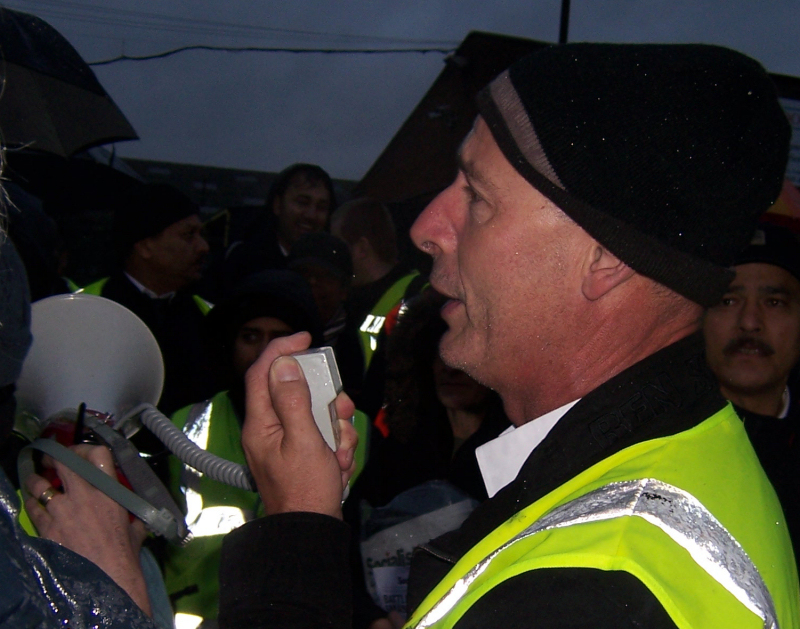In driving rain, hundreds of bus drivers formed picket lines across East London on 20 and 21 November. No worker wants to take strike action, but the bare-faced greed of East London Bus Group bosses has forced workers to take their first strike action for 18 years.
Paula Mitchell
These two days of action followed a strike on 9 November. Further days are planned if necessary.
This is a fight to defend hard-won conditions. The bosses are imposing a pay freeze, but for the drivers, the main issue is the long list of other attacks. The company wants to cut holiday and sick pay, abolish Sunday pay rates so the drivers just get the same flat rate throughout the week, remove overtime pay – if, for example, a bus comes in late from being caught up in heavy traffic – and cut back on pay for breaks. There are also issues of bullying management.
Workers at West Ham explained: “Our argument is with Transport for London (TfL) as much as with the bus company. TfL issues the contracts and then washes their hands of it. We’re on the front line. We can get so much grief from some passengers, and then TfL come in and they don’t give us the back up – they treat us as if it’s our fault.”
Tory mayor Boris Johnson is cutting at least £5 billion from TfL’s budget, as well as increasing bus fares by 12.7% and tube fares by 3.9% and the price of a seven-day bus pass from £13.80 to £16.60.
During the East London strike, it was announced that Unite members at three other London bus companies – First Centre West, First Capital East and Hackney Community Transport – have voted for strike action, with dates to be announced.
In the summer, Unite raised the need for an all-London campaign across the different bus companies. Now it is time to put words into action, and ballot the workers in all those London companies.
Wage differentials of up to £10,000 a year exist between different companies. This is because of the privatisation of buses that began under the Tories and has been carried on by New Labour.
These private companies rake in profits at the expense of the workers and the travelling public. They are subsidised to the tune of £1 billion from taxpayers’ money, and yet they plead poverty.
This is a lie. The owners of East London Bus Group are not the only ones swimming in profit. Despite the recession, Arriva’s profits have soared to £88.7 million. First Group made £200 million by March this year. Go Ahead is also growing greater than expectations. These companies use the excuse of the recession to drive down wages and conditions further so they can make even greater profits in the future.
These parasites should be removed and London buses brought back into public ownership, so that the profits can be used to provide decent wages and conditions, and improve bus services.











